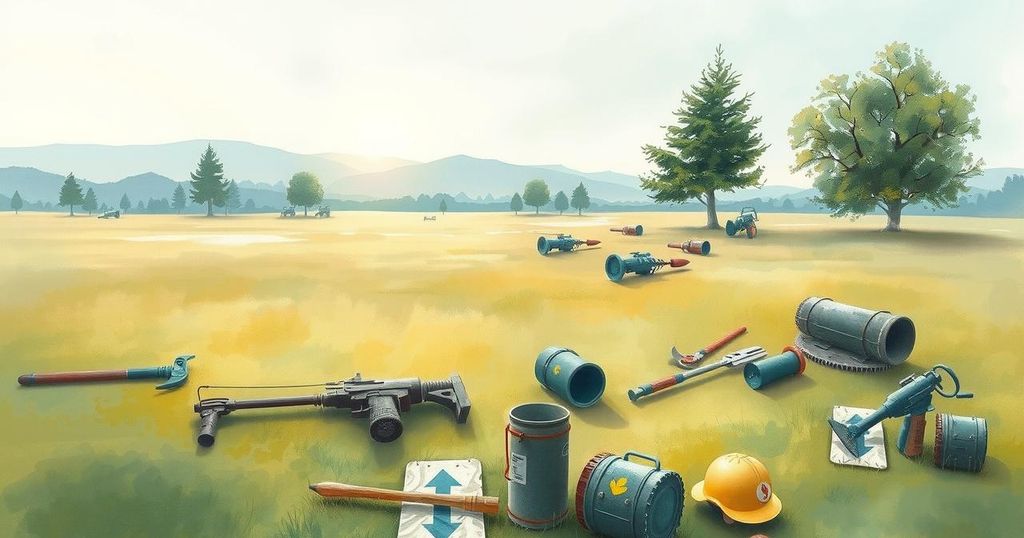North Korea to Send 5,000 Personnel to Kursk as Ukraine Conflict Escalates

Russia claims North Korea will send 5,000 personnel to Kursk. Macron condemns Putin’s actions in Ukraine, highlighting the impact of global distractions. Trump’s absence from the G7 summit has left Ukraine seeking support, while Australia imposes sanctions on Russia’s shadow fleet. Recent attacks on Kyiv have left many casualties, intensifying calls for peace negotiations.
In a recent development amid ongoing tensions, Russia claimed that North Korea will dispatch a formidable group to the Kursk region, including a division of builders and two military brigades totaling around 5,000 personnel, plus an additional 1,000 demining experts. This news originated from Russian state news agencies reporting comments made by Sergei Shoigu, the chief of Putin’s security council, during his visit to Pyongyang. This follows information from the British defense ministry indicating that among the 10,000 North Korean soldiers previously assigned to the conflict, around 6,000 have already faced casualties.
On another front, French President Emmanuel Macron has criticized President Putin’s actions in Ukraine, suggesting they exploit the global climate of distraction. During a press conference at the G7 summit in Canada, Macron stated, “It shows the complete cynicism of President Putin, who is using the international context to step again attacks against civilians.” This situation has escalated following a deadly strike in Kyiv, which resulted in the death of a U.S. citizen, according to the State Department.
The absence of former President Donald Trump from the G7 has left Ukrainian President Volodymyr Zelenskyy seeking clearer support from international allies, leading to frustration among European officials. Critically, one official lamented, “It is a permanent hazard that Ukraine is a victim of events and Trump’s short attention span.” As Trump maintains his focus on minimizing costs to the U.S. budget, Zelenskyy has sought to negotiate arms deals to bolster Ukraine’s defenses, a direct counter to Trump’s recent hesitations.
The G7 leaders deliberated on various topics, including Russia’s aggression in Ukraine. Zelenskyy affirmed Ukraine’s willingness for peace negotiations, emphasizing the need for “pressure on Russia” to reach a ceasefire. However, Trump’s contrasting position on the issue has made it clear he diverges from the collective stance that views Russia as the primary aggressor. He has voiced concern over the economic implications of sanctions, stating, “When I sanction a country, that costs the U.S. a lot of money, a tremendous amount of money.”
Tragically, Russia’s recent strikes on Kyiv have devastated civilian areas, leaving at least 18 dead and over 150 injured after an attack involving missiles and drones. A nine-story apartment building was struck in the Solomianskyi district of Kyiv, eliciting harrowing responses from survivors. Viktoriia Vovchenko, who resided nearby, shared her distress over the incident, noting the suffering of ordinary citizens caught in the conflict.
In response to the ongoing war, Australia has introduced measures aimed at penalizing what is termed the Russian “shadow fleet,” which operates under deceptive practices to evade sanctions. These actions represent Australia’s first steps into imposing sanctions on this front. Penny Wong, the Australian Minister for Foreign Affairs, described the shadow fleet’s operations as enabling the illicit trade of Russian oil and other regulated goods, emphasizing the need for global cooperation against such tactics.
The situation in Ukraine remains dire as North Korean forces augment Russia’s military efforts amidst severe attacks on civilian populations. International leaders are grappling with varying stances, particularly with the absence of U.S. support under Trump. The urgency for peace negotiations grows, yet the casualties continue to mount in the face of aggression. Amidst this chaos, new sanctions are being put in place against entities aiding Russian warfare, signifying a united front against ongoing violations of international norms.
Original Source: www.theguardian.com







